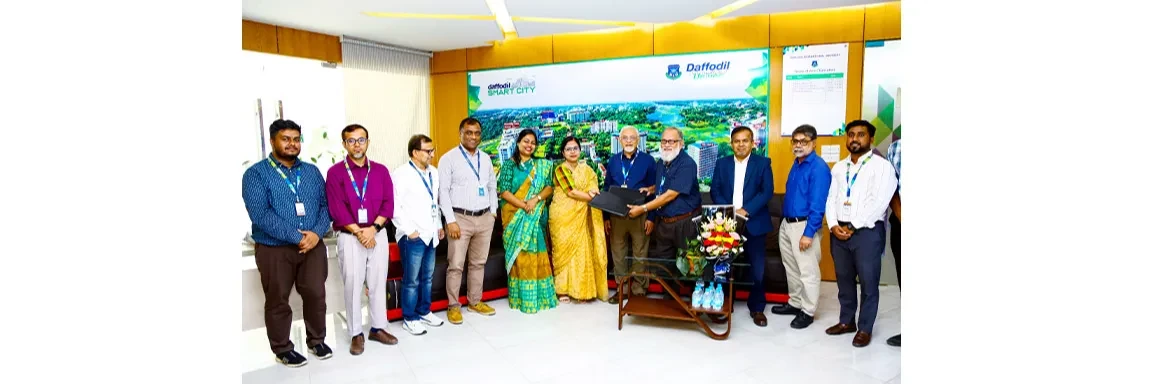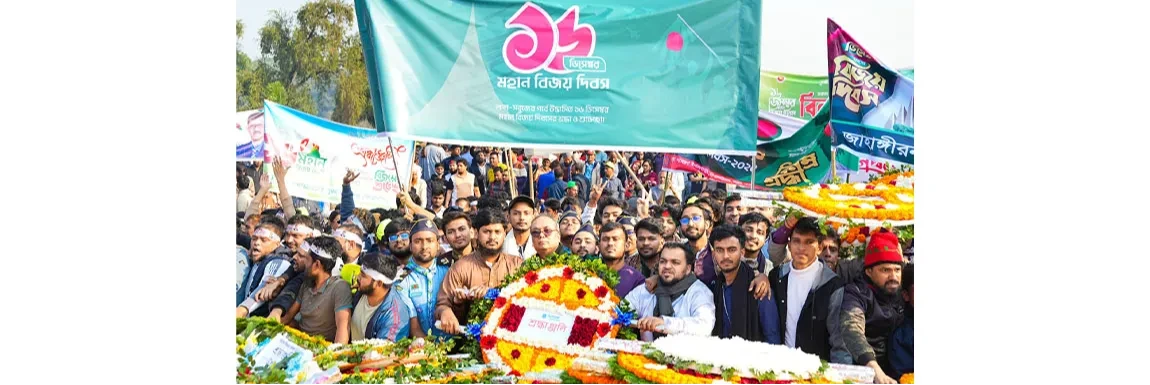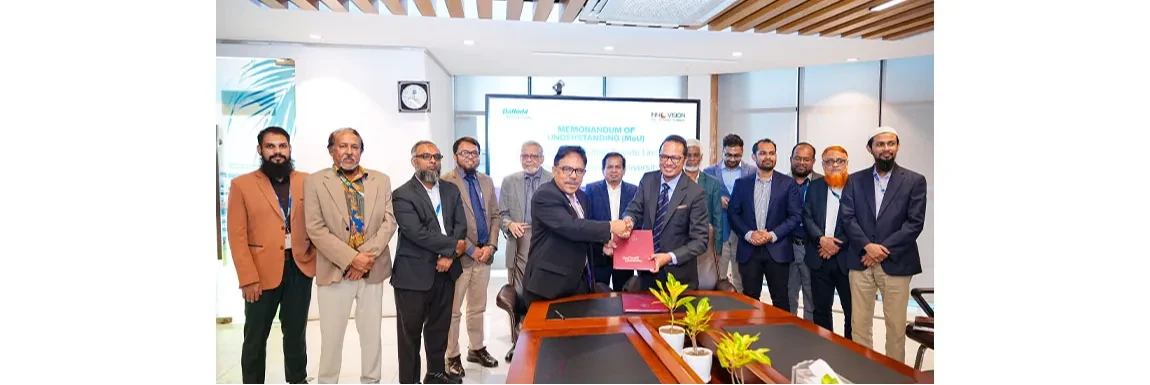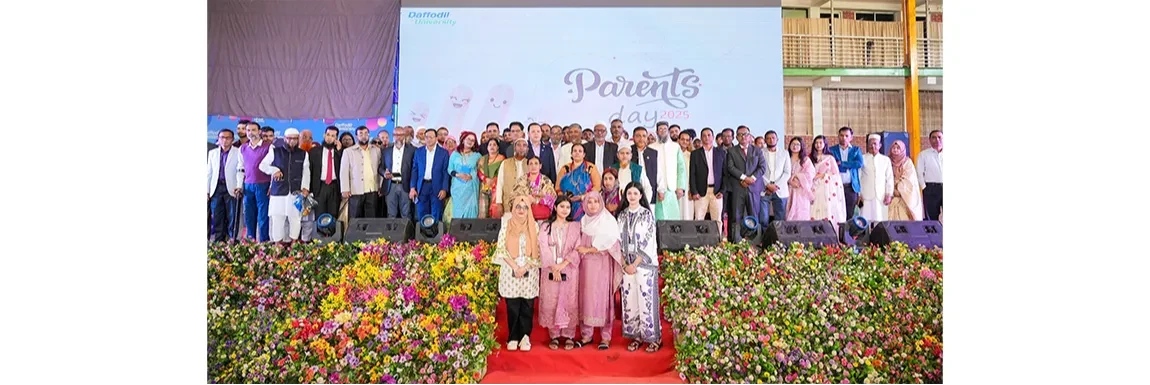DIU & HIB Launch Action Research on Sustainable Farming

Renowned scientist Dr. M.A. Rahim, Professor in the Department of Agricultural Sciences at Daffodil International University and Nurun Nahar, Country Director, Heifer International Bangladesh (HIB) exchanging agreement documents of Action Research Project held at Daffodil International University. Professor Dr. M. Lutfar Rahman, Vice Chancellor and Professor Dr. Mostafa Kamal, Dean of Academic Affairs of Daffodil International University along with other distinguished high officials were present at the program.
Heifer International Bangladesh (HIB) and Daffodil International University (DIU) have officially commenced a collaborative Action Research Project aimed at examining soil health to promote regenerative agricultural practices in Jashore. The plan was formalised at a signing ceremony held at DIU today on May 27, 2025. The study project is titled "Exploring Soil Health Conditions in Advancing Regenerative Agriculture in Jashore, Bangladesh." Renowned scientist Dr. M.A. Rahim, Professor in the Department of Agricultural Sciences at DIU, will lead the research, while Md. Fouad Hossain Sarker, Associate Professor in the Department of Development Studies at DIU, will serve as co-leader. This initiative represents a crucial advancement in promoting agricultural sustainability and enhancing smallholder farming in Bangladesh.
Esteemed delegates from HIB, including Nurun Nahar, Country Director; David Badol Gomes, Director of Programs; Dr. Md. Akramul Islam, Senior Program Manager-MELS; and Abdullah Seru, Communications & Knowledge Manager, collaborated with DIU’s senior leadership — Professor Dr. M. Lutfar Rahman, Vice Chancellor; Professor Dr. Mostafa Kamal, Dean of Academic Affairs; and Professor Dr. Liza Sharmin, Dean of FHSS — to strengthen their collective vision.
Since 2012, Heifer International Bangladesh has significantly empowered more than 87,000 farming families through climate-smart agriculture initiatives. This partnership highlights HIB and DIU's collective commitment to enhance community resilience, foster environmental stewardship, and eliminate poverty through scientifically supported solutions.


